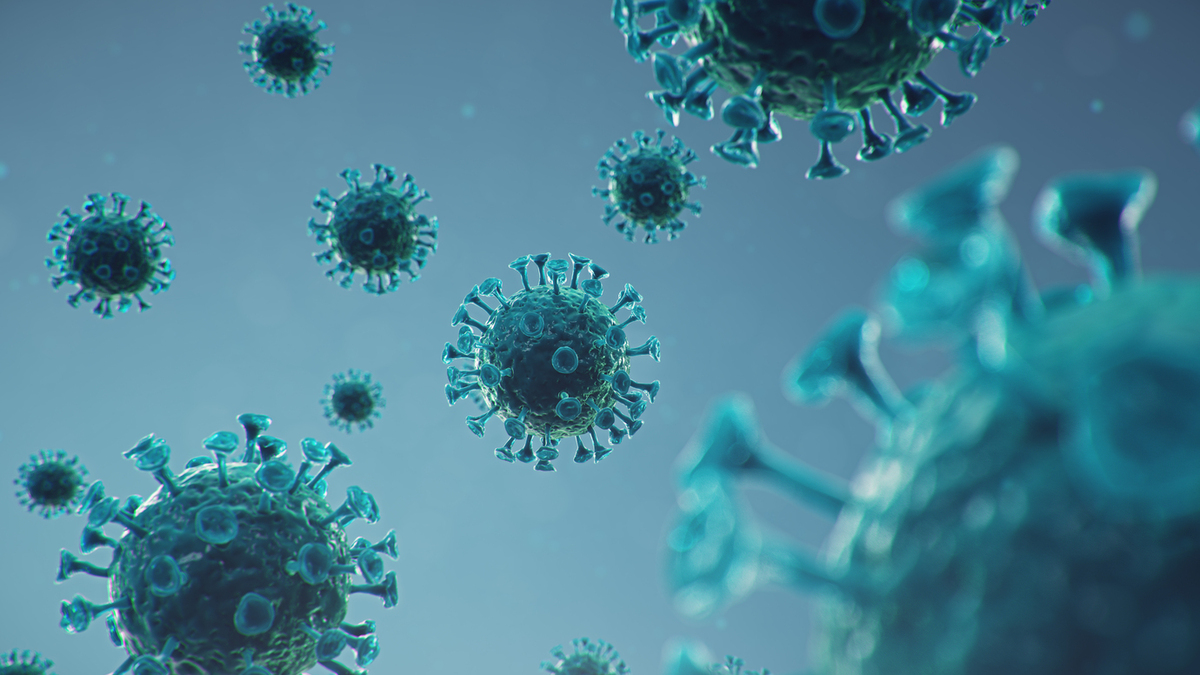Viruses are difficult to treat. They spend most of their time inside the cell they attack, effectively hiding from any drug that can kill them.
The only time a drug can affect viruses is when they exit the infected cell in search for other cells to infect. While many different drugs are used to cure or manage some serious viral infections (such as HIV or different types of hepatitis), a great number of not-so-dangerous infections are not treated directly.

You'll often just take vitamins to help boost your immune system response and hope that the flu will last as short as possible. We leave it to our own immune system to sort it out. The immune system, fortunately, has several different ways of dealing with viral infections.
Medications that make use of this natural process can be very effective. Recently, the antibody cocktail REGN-COV2 has drawn a lot of attention as a potential weapon in the fight against COVID-19. What should you know about REGN-COV2 and how it works?
What are monoclonal antibodies?
There are tens of different types of white blood cells, each with a different role in our defense system. The role of plasma cells is to produce large quantities of antibodies. Plasma cells live long, for tens of years, and sometimes even lifelong. And each time we encounter the same toxin, virus, bacteria, or anything else which might do us harm, plasma cells start producing antibodies to help fight the infection.
That's why we get vaccinated. Vaccines train our immune system to recognize the pathogen without making us sick. The result of vaccination is a fast immune response, and a large number of antibodies. Now, sometimes vaccines are hard or impossible to make. In some cases (as with COVID-19), the vaccine just isn't ready yet.
What we can do, while we wait for the vaccine, is to use the antibodies specific to that virus to help us overcome the disease. Use of antibodies isn't a new thing; we've been using them to fight rabies, as well as to neutralize different toxins, such as snake venom or the toxin produced by Clostridium tetani.
So let's say that we have an animal that has, in any way, developed an immunity to COVID-19. The plasma cells of that animal are familiar with the shape of the virus and can produce antibodies to fight that infection.
What scientists do next is fuse those plasma cells with myeloma cells (in this case, the tern myeloma refers to the cancer of plasma cells). The result is a population of cells that can produce large quantities of anti-COVID-19 antibodies. These cells can reproduce basically forever, as long as their environment is favorable. Next, these cells are injected into the peritoneum of a mouse, where they form a tumor and produce a liquid rich in monoclonal antibodies, the certain type which we chose.
What is REGN-COV2?
REGN-COV2, produced by Regeneron Pharmaceuticals, is basically a cocktail of two different monoclonally produced antibodies against COVID-19. The choice to include two different types of antibodies was made to make sure that the virus doesn't mutate and become resistant to this drug. Acquiring resistance to this cocktail would require a simultaneous mutation of two different parts of the nucleic acid of the virus, which is highly unlikely.
To infect the cell, the virus must first enter it, and it does so with the help of certain docking proteins, which protrude from the surface of the virus. These docking proteins are the target of the antibodies in the drug. Once the antibodies bind to their target, the virus is neutralized. Potentially, this drug can be administered via injection.
The drug has been tested on rhesus macaques, and, while all of the subjects in the untreated group developed lung injury, the drug prevented this condition in all but two macaques, in the group infected with the highest dose of the virus. Virus replication was also reduced in golden hamsters, another animal species used to test this drug.
Next came the human trials. 275 patients were included in the testing of REGN-COV2. Within seven days, the viral concentration declined rapidly in the test group of patients who did not yet develop antibodies to the virus. All in all, the data collected so far suggest that this drug can be highly effective both as a treatment, and as prophylaxis for COVID-19.
The company making this drug has stated that they currently have doses for 50,000 patients, with 30,0000 more doses in production, which will be available in the next few months.
- https://investor.regeneron.com/news-releases/news-release-details/regenerons-regn-cov2-antibody-cocktail-reduced-viral-levels-and https://www.cebm.net/covid-19/monoclonal-antibodies-directed-against-sars-cov-2-synthetic-neutralizing-antibodies-the-regn-cov2-antibody-cocktail/ https://www.ncbi.nlm.nih.gov/books/NBK100188/


Your thoughts on this